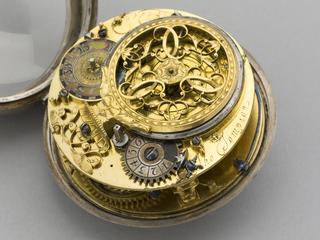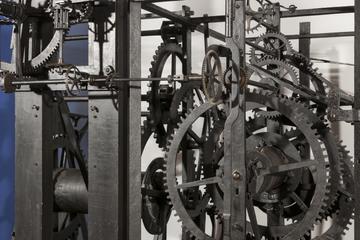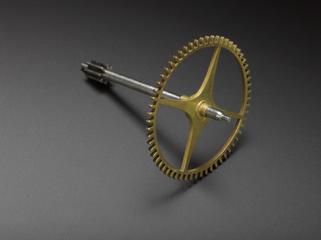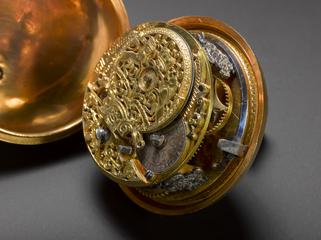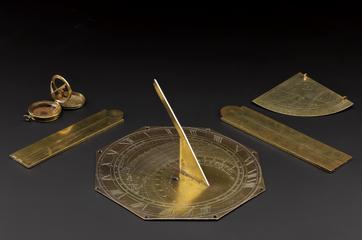
Small galvanometer.
- maker:
- Matthias Hipp





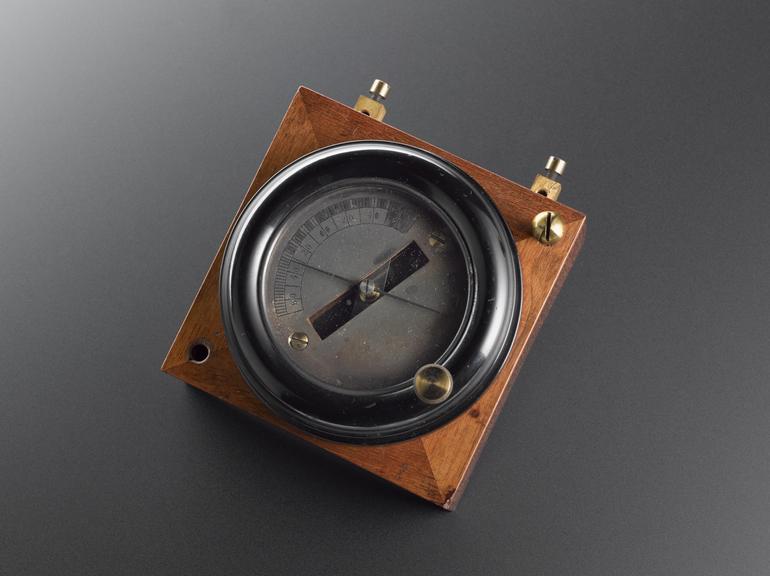
Small galvanometer for use with chronoscope, made by Hipp, Neuchâtel, 1888
Produced by Matthias Hipp of Neuchatel, Switzerland, this device was used to measure short intervals of time to within 1/1000th of a second. Its timekeeping element is not a pendulum but a metal reed which vibrates 1000 times per second above an escape wheel; one tooth of the escape wheel passes it every one-thousandth of a second. In use, the clockwork is kept in continuous motion and the indicating mechanism is started and stopped by electromagnets. Hipp's chronoscopes were originally used in military research experiments to measure the speed of projectiles, but achieved popularity with the advent of experimental psychology laboratories in the late 19th century, in which they were used to try to determine the speed of thought.
Details
- Category:
- Time Measurement
- Object Number:
- 1889-38/2
- Materials:
- brass (alloy) and glass
- type:
- galvanometer
- credit:
- Mr. J. N. Hipp
